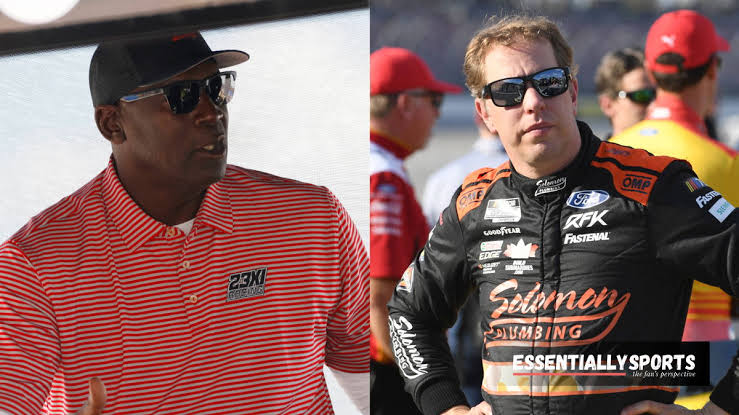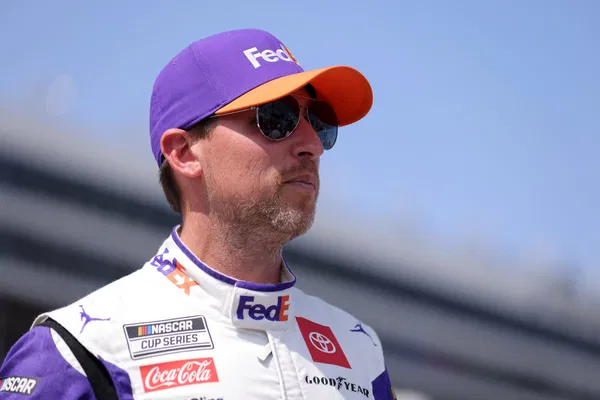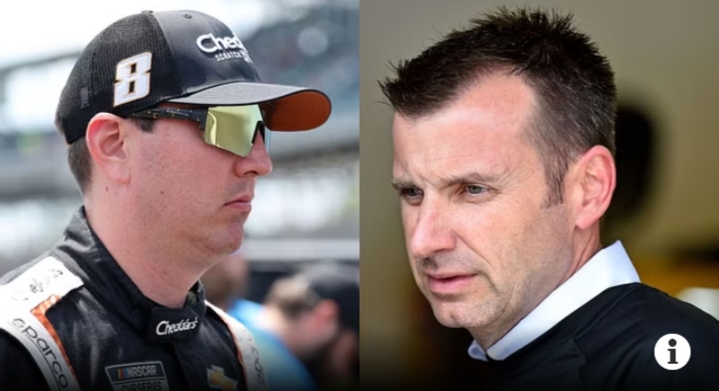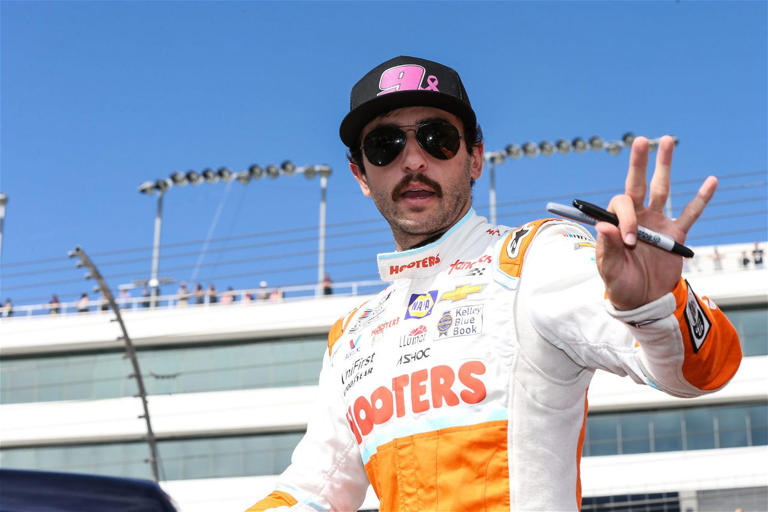It’s a rare occurrence for Michael Jordan to face defeat, but whispers in the industry suggest that Brad Keselowski may have pulled off the impossible. Sources indicate that RFK Racing is poised to make a significant move by acquiring a third charter, potentially expanding their lineup to three full-time entries in the NASCAR Cup Series. Meanwhile, 23XI Racing has been eyeing one of the two charters available from Stewart-Haas Racing, but it appears their ambitions have been thwarted at the last moment.
The current charter negotiations have hit a standstill, and 23XI co-owner Denny Hamlin has openly criticized NASCAR for their handling of the protracted discussions. A report from the Sports Business Journal suggests that RFK Racing is likely to secure a sponsorship deal with Kroger, the third-largest retailer in the U.S. If this partnership comes to fruition, it would bring Chris Buescher back together with Kroger, a brand he represented from 2017 to 2019 while racing for JTG Daugherty Racing. With Kroger’s support, industry insiders believe RFK Racing could successfully expand to three full-time cars. The team, currently under the ownership of the Fenway Group, may be able to negotiate a lease for a third charter, provided the new charter agreement allows for such an option.
So, what does this mean for 23XI Racing? As highlighted in a YouTube discussion by Eric Estepp, the team has also been looking to grow to three full-time cars. However, if RFK Racing’s plans come to fruition, Denny Hamlin and Michael Jordan may have to accept defeat. Of the three charters up for grabs from Stewart-Haas Racing, Front Row Motorsports has already acquired one for an estimated $20 million to $25 million. Trackhouse Racing is also rumored to be in the running for another charter, with plans for Shane van Gisbergen to take the wheel of their third car. If the rumors about RFK Racing’s expansion are accurate, it could clarify the destination of the third charter.
Denny Hamlin has been very vocal about his dissatisfaction with the ongoing charter negotiations. Currently, the existing agreement is set to expire on December 31st, and teams are actively striving to secure permanent charters. Unlike franchises in other sports leagues, NASCAR charters are not guaranteed, meaning teams risk losing them if they underperform or fail to enter their cars in every race. This situation has led to financial losses for teams each year and has made it challenging to attract outside investors.
Given the lack of progress in the charter negotiations, it’s no surprise that 23XI Racing has decided against expanding its roster. They are keen on owning what they invest in, but NASCAR has not been accommodating to their requests. In a bold move, the teams have enlisted attorney Jeffrey Kessler, renowned for his expertise in sports litigation, signaling their readiness to stand up for their rights. If this means 23XI Racing misses out on acquiring a third charter, Denny Hamlin and Michael Jordan are prepared to accept that consequence.
For some time now, NASCAR teams have been striving to lessen their reliance on sponsorships. This goal was significantly advanced when the sanctioning body secured a groundbreaking $7.7 billion media rights deal over seven years. Under this agreement, the broadcasting rights for the Cup Series will be shared among NBC, Fox, Amazon, and Warner Bros. Discovery. However, Cup Series teams are pushing for an increase from the current 25% share they receive from broadcasting contracts, resulting in a deadlock between the teams and NASCAR.
Speaking about the evolving economic landscape in the sport, RFK Racing co-owner Brad Keselowski said, “If I go back in time 20 years ago, the dynamic was, as far as funding a team, 90 percent sponsorship-based, 10 percent outside revenues, which might be race purse or outside revenues. And if you take a snapshot of where we are today, maybe it’s closer to 75 sponsorship, and 25 percent purse or outside revenue so to speak. It appears the new charter agreement is going to get that somewhere closer to 65-35, which is a shift that can’t be understated. But the reality of that is it still doesn’t fully flip the script so to speak. It’s just a step in the right direction.”
Unlike other sports, NASCAR is exclusively owned by the France family, who also own the majority of tracks. This means that teams have been traditionally dependent on sponsorships as a primary source of income, which has severely affected their ability to sustain themselves financially. If NASCAR doesn’t increase the teams’ media rights allocation, it’s not beyond the realm of possibility that other teams will follow Stewart-Haas Racing in the foreseeable future and cease operations in the sport.




